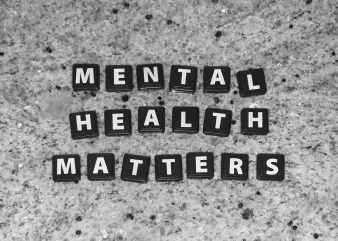Managing Mental Health in the workplace
Mental health is important. What I’ve learned is that 1 in 4 people in Australia will suffer from anxiety (Beyond Blue, 2022). It’s too big a number, but the good news is that anxiety is treatable. What I have learned is that I am on the broader autism spectrum known as ‘high functioning’. It’s also known as ASD (Autism Spectrum Disorder) or Asperger’s which has caused my anxiety due to not feeling like I fit into a neurotypical society because I am neurodivergent. Autism is often undiagnosed or misdiagnosed in females because it can present differently in females and diagnosis has primarily been comparison against how it presents in Anglo Saxon males. Because of this, I learned that I employ a lot of strategies to manage those triggers. Females tend to mask or mimic socially acceptable behaviours so it can be difficult to diagnose. My anxiety is not a secret, I have posted about it here on LinkedIn, on Instagram and I have previously divulged this information about my anxiety to my employers. The problem is that when I do not have supportive or have ineffective leaders, they trigger my anxiety. When this happens, I often act out of character. It is also often due to sustained periods of anxiety. The behaviour displayed is just the tip of the iceberg (Anger Iceberg, Therapist Aid, 2022). If I act out in anger, it is a secondary emotion. It’s often the things you don’t see that triggered the emotion. Much like when we have had a bad day at work and we go home and take it out on our spouse/partner or children. Often, they are not the source of our anger. Yet they become the recipient of it.
I talk about my mental health and wellness in order to demystify the topic. I go to therapy, I speak openly about mental health in the workplace. What I have learned is that I go to therapy for people who won’t go to therapy ie. I have been bullied or people project or transfer onto me. The actions of others say more about them than it does me. Due to this, I learn grace. My behaviour is a reflection of me – my life experiences. Other people’s actions are the result of their life experiences. We need to heal ourselves so we don’t bleed on those that didn’t cut us. The more open we are about our own struggles, I feel the more it allows other people to have the space to speak freely about their mental health.
Creating psychological safety for your team is important. As leaders, we have experienced times where we have felt we did not have the psychological safety we needed. This is why it is important to provide your people with their own space to vent – and maybe talk about you freely. We’re all human and we all need to vent. This helps us to maintain our mental wellness. When we feel we can speak freely about our frustrations to others, then it creates a space where it can be reciprocated. I like to ask my teams to set up time as a team without me as their leader so they can speak freely. This is called providing the team their “third space” (Forbes).
This ‘third space’ is their time as a team to decide what the intention is and how they will use that time with purpose. It does not need to be mandatory but needs to be scheduled time so they can use it when and how they need it. As we all know, if it is not in the calendar, it doesn’t happen. Especially when there are deliverables and timelines to meet. It allows the team to use the time to reflect, reset and refocus if they need to – as many times as needed. It’s important this time is provided for the team. As leaders, we know how important it is to create these third space moments for ourselves, so it is important to create this space for our teams as well.
https://www.beyondblue.org.au/the-facts/anxiety
https://www.autismawareness.com.au/aupdate/autism-in-women
https://www.therapistaid.com/therapy-worksheet/anger-iceberg
https://www.forbes.com/sites/hillennevins/2021/10/14/the-third-space/?sh=5b28d7e0686a
https://businesschicks.com/third-space-adam-fraser-tells-us-3-ways-find/


